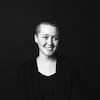Portland hip-hop is at an impasse.
Now that Aminé has a triple platinum single and the Last Artful Dodgr is Instagramming videos with Mark Ronson and Christina Aguilera, it's known across the country, if not the world, that Portland is a hip-hop powerhouse. But praise of the scene's current wave is frequently marked by one minor blip that has major implications—the assertion that it's surprising to see a rapper rise out of Portland
That's a misconception Cliff Stanford, aka DJ Klyph, wants to change. Ever since he moved to Portland more than 20 years ago, Stanford has been studying the city's hip-hop scene, first as a hopeful rapper and then as a radio DJ and a podcast host. Stanford also runs Mic Check, a quarterly showcase of regional hip-hip that he co-hosted with the late promoter StarChile, who had long been an advocate for the scene. This Thursday, Mic Check celebrates its second anniversary.
Now that Portland MCs have national attention, Stanford leverages his various platforms to encourage the growth of Portland hip-hop while reminding everyone how long the scene has been here. This week, he's co-hosting Portland Hip-Hop 101, a panel at Mississippi Studios that includes figures from both Portland hip-hop's old guard (O.G. One, Vursatyl, Cool Nutz ) and new guard (Karma Rivera, Mic Capes, Rasheed Jamal). The conversation will be recorded for an episode of The Future of What, a podcast run by Kill Rock Stars president Portia Sabin.
In advance of the panel, WW talked to Stanford about the early days of Portland hip-hop and how to keep its momentum going.
WW: Who selected the artists to participate in the panel?
DJ Klyph: Sometime in the summer, I had the opportunity to facilitate a panel with the Northwest chapter of the Recording Academy. O.G. One was on that one, Vursatyl was on that, and then we tried to look at who would represent the old generation and the new generation. It was collaborative.
What did you talk about on that panel?
We talked about how, nationally, people are looking at Portland, and how do you guys feel about that? You guys have been going stuff in Portland—O.G. and Vurs—for a minute. Do you feel some kind of way that all of a sudden people are like, "Oh, look what Portland has to offer"? We kind of touched on the experience of being an artist in Portland. What does that look like today, what did it look like yesterday, how do we keep this positive momentum going?
Do you feel a certain way now that there's this sudden national attention?
I'm torn. When I was younger, I remember people would say, "This is just a fad, rap will come and go." In a sense, I'm happy that people are recognizing what these men and women are doing now. But I want to make sure we take control of that narrative so that what we celebrate is the real beauty of the art form. To me, that's really important, that we use these platforms to push and promote what I believe are the foundations of hip-hop, which are peace, love, unity and having fun. That we also use it for communicating the reality of what's happening in our local communities and national communities and global communities.
What was Portland hip-hop like when you started digging into it?
There were a lot of collectives in Portland. The Misfit Massive Crew, Sly the Brown Hornet, Libretto, some artists who are still doing stuff today. People would come out and see them, they were really celebrated as hometown heroes. But then there were other collectives, Sandpeople and Old Dominion, two really big groups of individual artists who were really talented but doing things in their only little pocket in the city. It wasn't a ton of crossover.
Has that changed since then?
In the next generation that's coming up, you get to see a little more of a collaborative effort. You see artists who maybe you traditionally wouldn't see work together starting to work together. I think with the generation now, that internet generation, it gives opportunity to collaborate a little bit differently. I think also, to a certain degree, artists realize there's power in numbers and if we work together, we can get a little bit further than if we do it on our own.
Was that part of why you started working as DJ and a promoter, to connect all those different parts of the scene?
Truly. At that point I was thinking, I'm not hearing necessarily what I want to hear on radio, so let me take this platform and provide that. Maybe they're not together on a record, but now they'll be together on my radio show. That's kind of how it started for me. I wanted to give the city something that was here, but I just didn't know how to access it.
Why is it important to you to bring different generations of Portland hip-hop together?
I don't even know if I can verbalize it. I think for me, I truly love hip-hop. I love the power of hip-hop, I love the beauty of it. I think it's important to me that we don't lose that beauty. As I look at young people coming up, I think giving young people options and exposing them to what more can exist—I feel like as a human being, it's what we all should do. We all should use whatever platform we have—mine just happens to be a love of hip-hop and a radio show—and say, "Here's an option for you. These are the benefits of doing things this way, the long-term benefits that maybe you just didn't know about."
Do you think there's a danger of just looking forward without looking back?
There's an old saying, "If you don't know where you've been, you don't know where you're going." I think that's one of the great things for me about having the chance to do an interview with Vursatyl or Cool Nutz or Jumbo the Garbage Man and O.G. One—people who have been in Portland for many more years than I have, people who came up born in Portland, who came up in the scene.
I think it's valuable that we listen to those stories, because then we can really see the foundation of where a lot of what we're doing now came from. If we all jump on what's hot and what's new, oftentimes it doesn't last. It is truly a fad. So to maintain our foundation, I think that's what's going to help us be sustainable.
How do you balance supporting innovation with respecting the old guard? I know you're not a fan of "mumble rap."
This is again looking at it through my own lens. If you are a rapper, I think that there's a difference between experimenting and staying within certain rules. Perfect example, if you say "I'm a singer," and you don't sing on key—there are just certain rules that apply. To me, that's the issue I sometimes have with certain rappers, whether it's mumble rappers or not. If you are rapping, there are certain structural components of a song that have to be there. I think if you're rapping, you should rhyme. If the architect doesn't follow the rules, the walls are going to fall down.
Is that what you hope to do, to make sure the walls of Portland hip-hop don't crumble down amid all the hype?
I don't want to come off to much like the old man. It's peace, love, unity and having fun, so have fun. But really hone your craft. If you're not ready to perform, go and study those who you celebrate. This goes for me as well. When the Migos album dropped, I went and listened to it, because that's what I should do. It goes both ways. Older generations need to listen to newer generations, and vice-versa, so that we can speak the same language, so that we can come together and have intelligent conversations. I can't share wisdom with you if I don't understand the way you talk.
SEE IT: The Future of What: "Portland Hip-Hop 101" is at Mississippi Studios, 3939 N Mississippi Ave., mississippistudios.com, on Saturday, June 30. 1 pm. $5. All ages.

